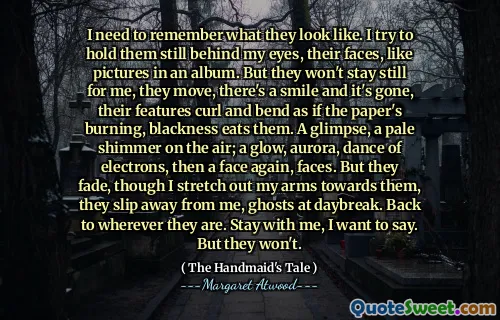Moira had power now, she'd been set loose, she'd set herself loose. She was now a loose woman.I think we found this frightening.
In "The Handmaid's Tale," the character Moira experiences a profound transformation as she gains a sense of empowerment and autonomy. This newfound freedom allows her to redefine herself, embracing a defiant identity that challenges the oppressive structures around her. Her declaration of being a "loose woman" signifies a rejection of societal constraints and expectations, highlighting her shift from subservience to self-assertion.
This development in Moira's character evokes fear among others, as her liberation contrasts sharply with the controlling environment they inhabit. The fear stems from the potential consequences of such freedom, illustrating the anxiety that arises when individuals break away from conformity and claim their own identities. Moira’s journey reflects a broader theme of resistance against oppressive systems, provoking both admiration and dread within the society depicted in the novel.
